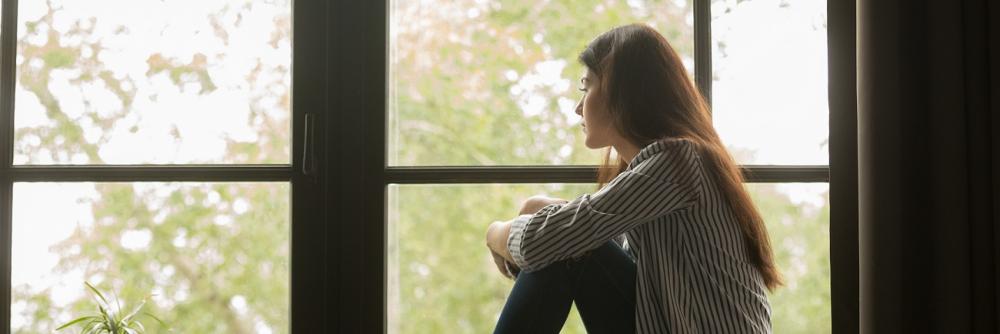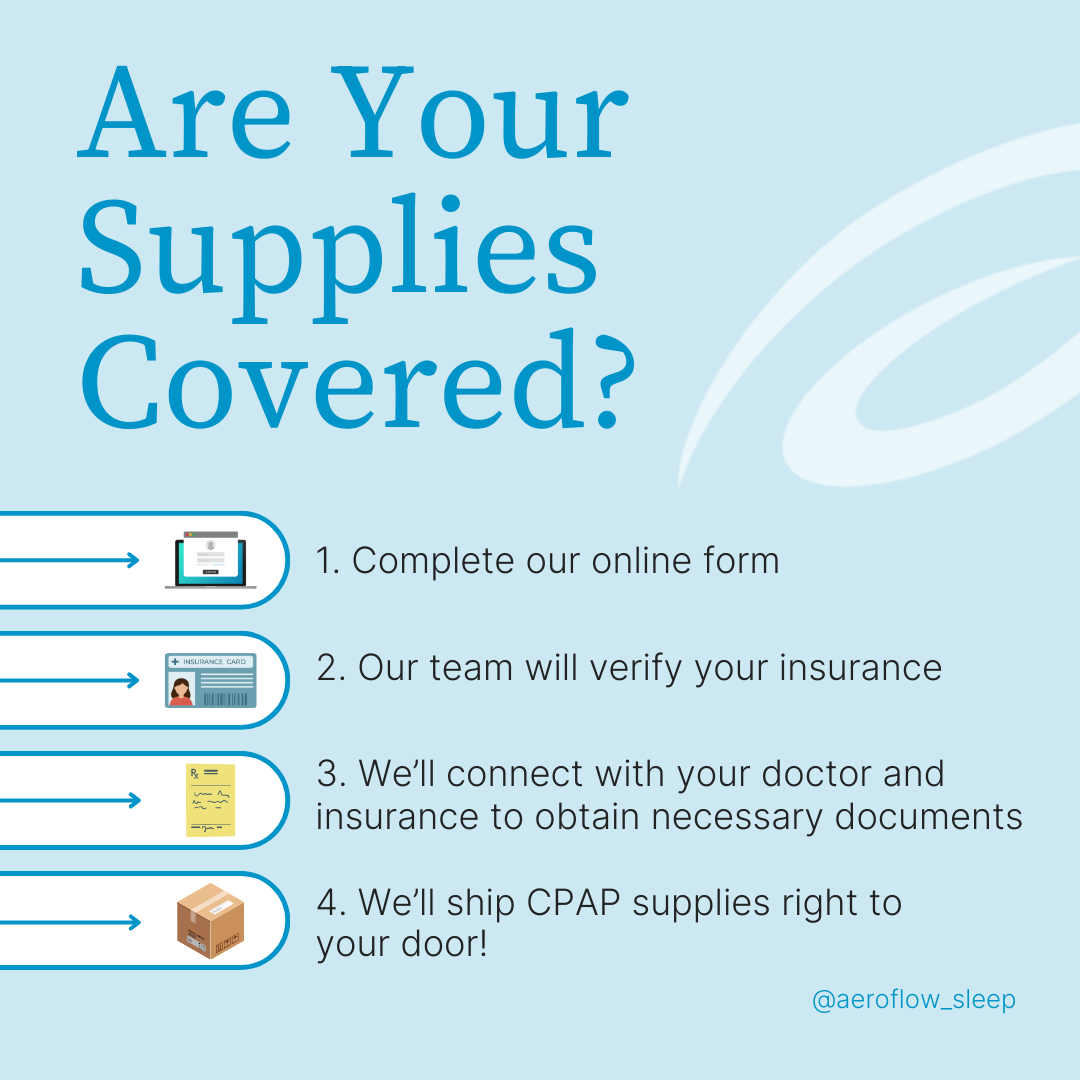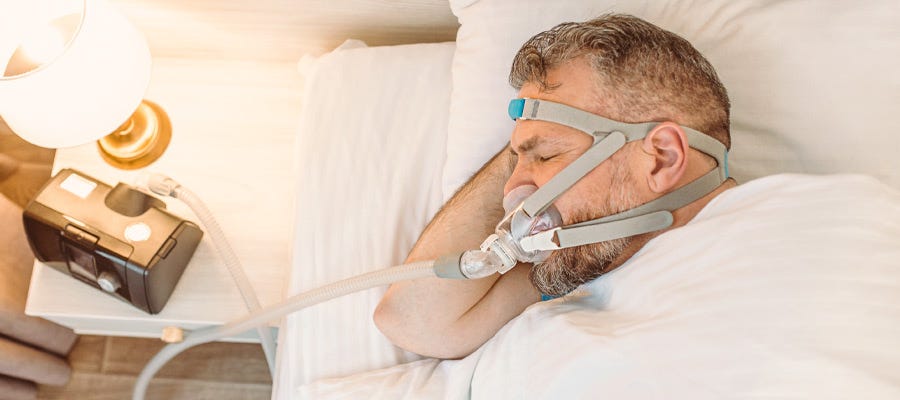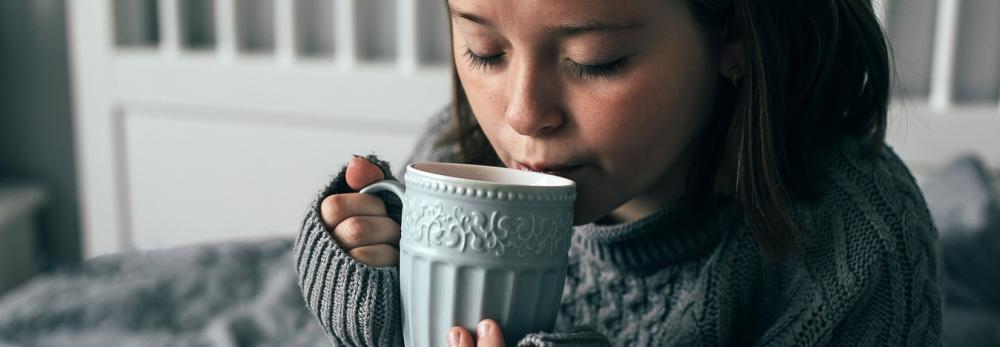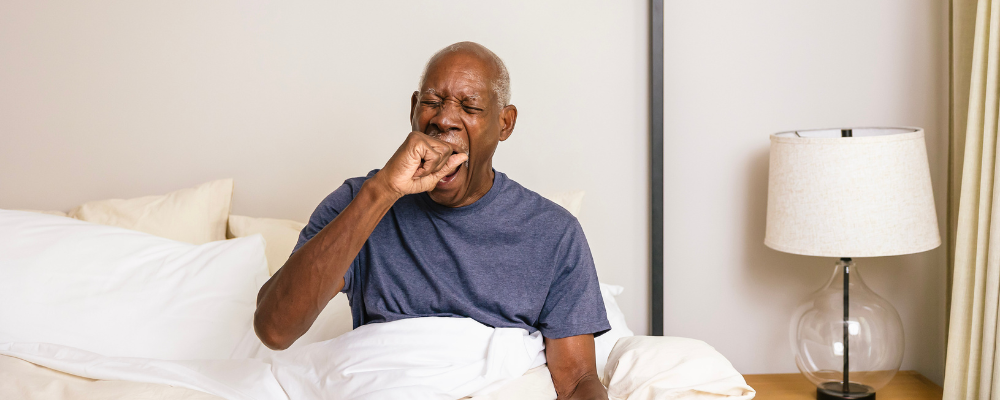Mental health disorders can go unnoticed because visible signs of trauma are few and far between. Nonetheless, they are as crippling as a broken arm.
Many also have difficulty recognizing sleep disorders because most symptoms occur during sleep. Sleep apnea is one such disorder.
Now, what if sleep disorders directly correlate with anxiety disorders, and vice versa? Can sleep apnea cause anxiety? Let’s find out, and then discover how CPAP therapy can help.
Can Sleep Apnea Cause Anxiety?
Studies show that obstructive sleep apnea (OSA) may be prevalent among patients with major depressive disorder (MDD) and posttraumatic stress disorder (PTSD.) Dr. Madhulika A. Gupta published in the Journal of Clinical Sleep Medicine that “OSA has been associated with psychiatric pathology.” That means there’s enough evidence to suggest that OSA may very well be associated with anxiety, just like health conditions like heart disease and high blood pressure are common risk factors of OSA.
Can Anxiety Cause Sleep Apnea?
On the flip side, anxiety can cause sleep apnea, because symptoms of anxiety can compound and become symptoms of sleep apnea. For example, lack of sleep due to an overactive mind or sleep disruption due to night terrors may lead to excessive daytime fatigue or insomnia.
Research published in the Journal of Medical Sciences suggests, “Anxiety is more frequent in OSA patients […] Therefore, it is advisable for a variety of medical specialists including psychiatrists to keep in mind the probable diagnosis of OSA in such conditions.”
So, if you have depressive symptoms and struggle with sleeping or sleep deprivation, it’s time to ask yourself if you have untreated sleep apnea. You may even be surprised to find that treating sleep apnea can also treat your anxiety.
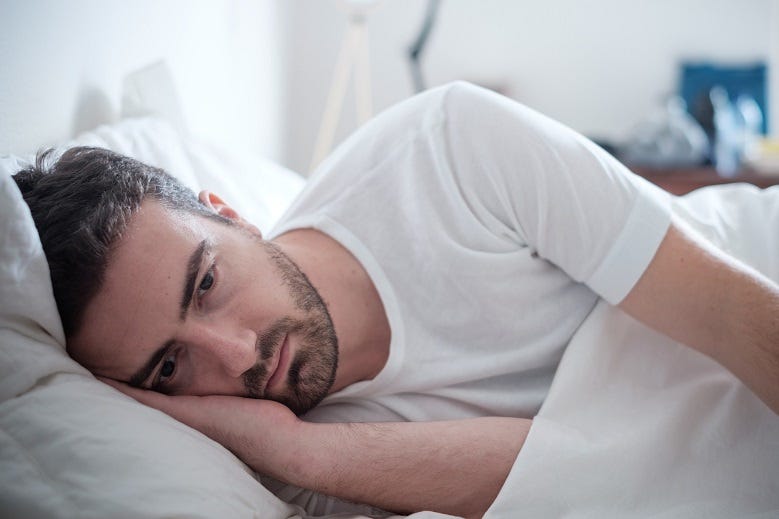

Can Treating Sleep Apnea Help with Anxiety?
A good night’s sleep can do wonders for all kinds of health issues! A rested body has more energy to minimize unwanted disorders, and treating sleep apnea does just that; treating sleep apnea helps anxiety.
An article in the European Respiratory Journal reveals that short-term and long-term CPAP use improved the quality of life amongst patients who had both OSA and anxiety or depression. All it took was 3-12 months of continuous positive airway pressure (CPAP.)
Dr. Gupta notes the same is found in PTSD patients, and Aeroflow Sleep agrees. In fact, there was one case where “a 42-year old male veteran with PTSD and severe OSA was treated with CPAP, resulting in control of OSA symptoms, nightmare reduction, and improvement in PTSD symptoms. Treatment of both [anxiety and sleep] disorders should be considered for optimal treatment outcomes.” Another statement Aeroflow Sleep supports.
That said, it’s important to be aware that anxiety can be a side effect of CPAP use too, especially in the beginning. Patients who are new to CPAP may experience panic attacks and feelings of claustrophobia, because they are not used to wearing a CPAP mask. Talk to your doctor if you have a history of either, before being treated for sleep apnea.
How Is Sleep Apnea Treated?
The first step to treating sleep apnea is asking your doctor for a sleep test. A sleep test measures how often you stop breathing while sleeping on the apnea-hypopnea index (AHI). If your AHI reaches above 6, you probably have sleep apnea. More than 30, you have severe sleep apnea.
Next, your doctor will tell you about continuous positive airway pressure (CPAP.) This is the recommended treatment option for sleep apnea patients. It works by having a CPAP machine restore and regulate your normal breathing patterns by blowing air through CPAP tubing into a CPAP mask and then to your nose and/or mouth.
Finally, get your CPAP supplies from Aeroflow Sleep. With our user-friendly patient portal, you can easily order everything you need online. You can also call your dedicated Sleep Specialist; a human located in our live US-based call center. Plus, our trustworthy drop shipping means we quickly send your CPAP equipment right to your front door no matter the distance.
Start by joining the Aeroflow Sleep family today and see if you qualify for CPAP equipment through insurance.
References
Gupta, Madhulika A., MD, FAASM; Simpson, Fiona C., HBSc. Obstructive Sleep Apnea and Psychiatric Disorders: A Systematic Review. Journal of Clinical Sleep Medicine. 2015 Feb. 15
https://jcsm.aasm.org/doi/10.5664/jcsm.4466
Rezaeitalab, F.; Moharri, F.; Saberi, S.; Asadpour, H.; Rezaeetalab, F. The Correlation of Anxiety and Depression with Obstructive Sleep Apnea Syndrome. Journal of Research in Medical Sciences. 2014 Mar. 19 https://www.ncbi.nlm.nih.gov/pmc/articles/PMC4061640/
Kotsiou, O.; Siachpazidou, D.; Vasileios, S.; et al. Evaluation quality of life, anxiety, and depression in patients with obstructive sleep syndrome before and after three and twelve months of continuous positive airway pressure therapy. European Respiratory Journal. 2021 Sep https://erj.ersjournals.com/content/58/suppl_65/PA739


